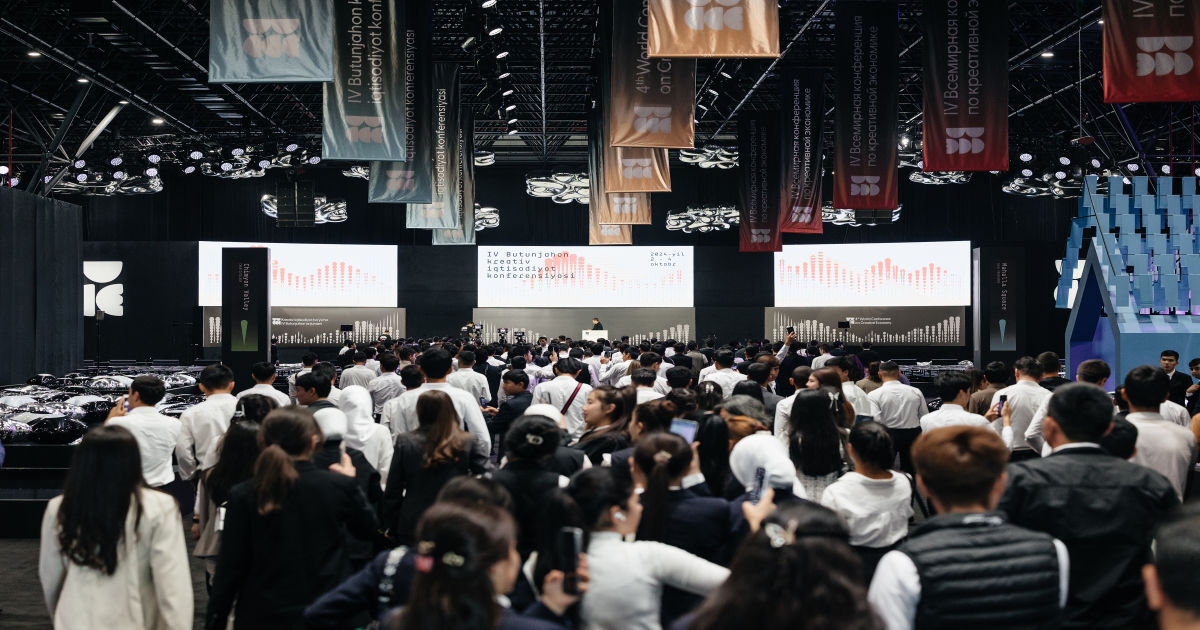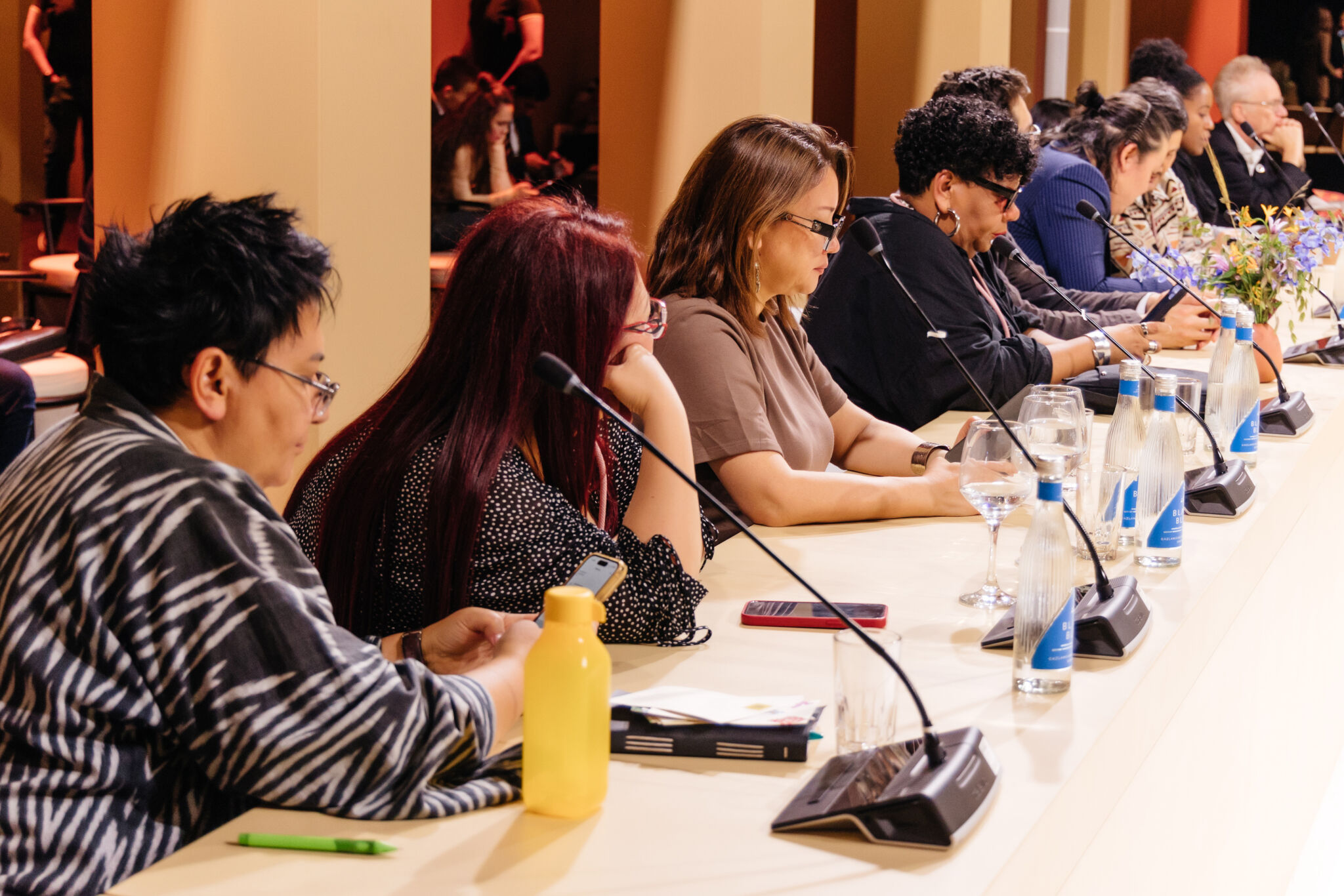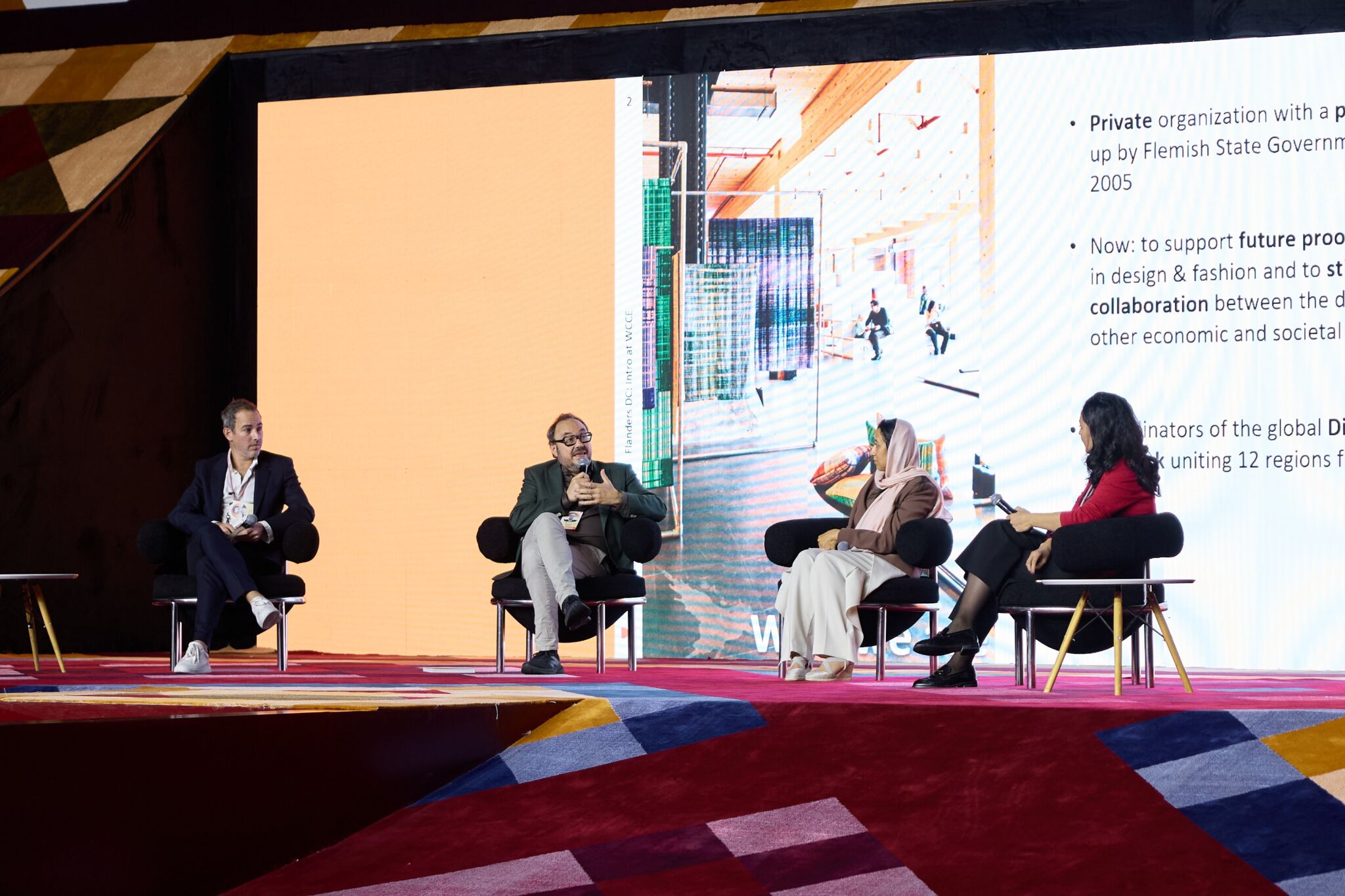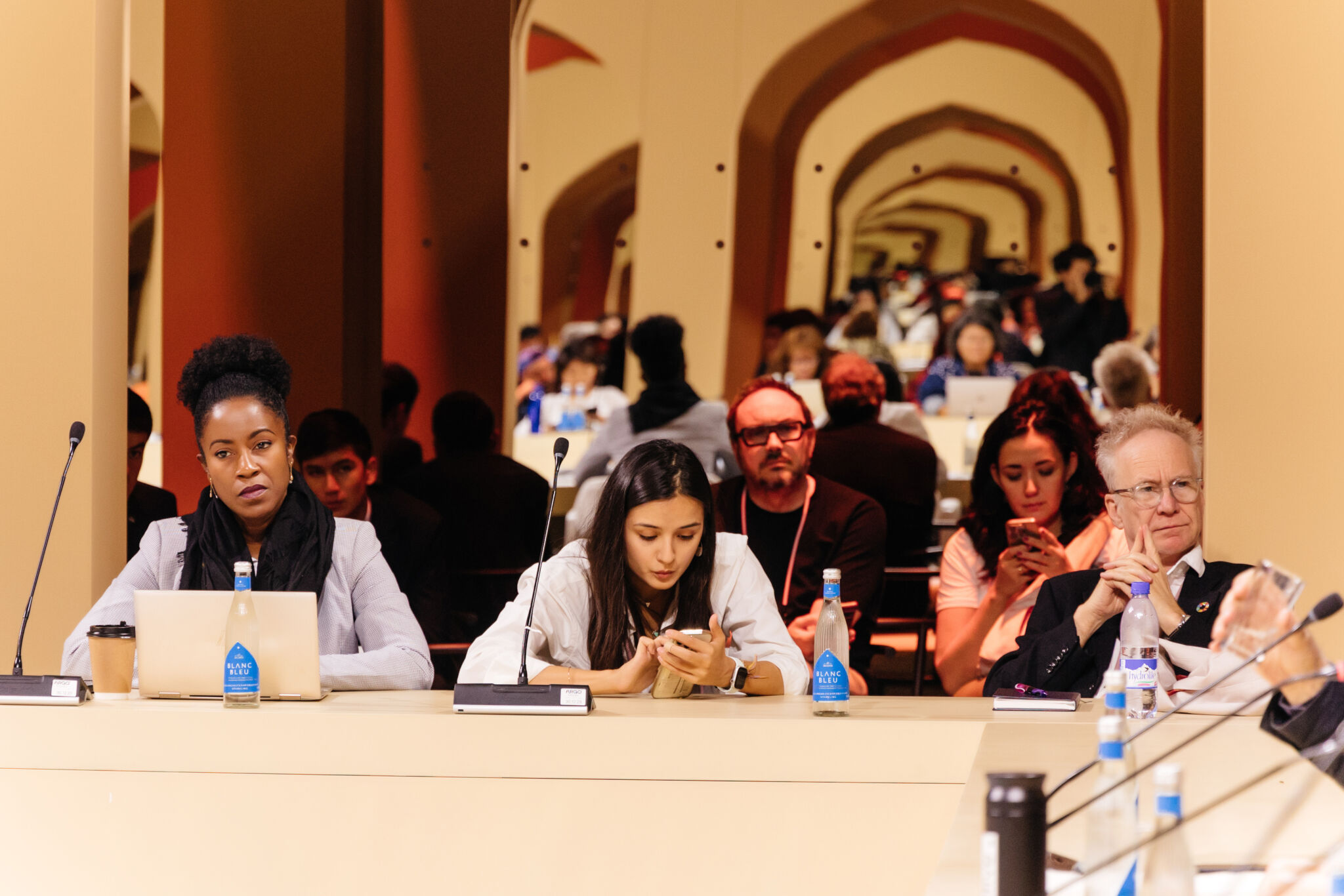IV World Conference on Creative Economy was held in Tashkent
Over 2000 experts visit Uzbekistan to participate in the World Conference on Creative Economy (WCCE)

From October 2 to 4, 2024, Tashkent hosted the World Conference on Creative Economy, organized by the Uzbekistan Culture and Arts Development Foundation. Prior to the event, a law aimed at developing the creative industries was enacted in the country. This legislative act defines the priority directions for the development of creative industries and establishes the principles of state policy in this field.
The WCCE was first organized in 2018 in Indonesia and has since established itself as the leading international platform for discussions on the creative economy. It fosters international cooperation and emphasizes the role of creative industries in promoting sustainable economic growth and transitioning from a resource-dependent economy to a knowledge-based economy.

Photo provided by the Foundation for Development and Culture
The conference featured key events, including a meeting of ministers on creative economy issues, an exhibition showcasing the achievements of global and Uzbek creative industries, and numerous seminars, workshops, and practical sessions. One of the highlights was the opening of new art residencies at the Center for Contemporary Art in Tashkent.
Some of the panels covered topics such as “Cultural Centers: museums as Catalysts for Creating Creative Communities in Urban Spaces,” “Lights, Camera, Future: Defining Tomorrow’s Film Trajectories,” “Borders of the Future: Unveiling the Potential of Creative Workforces,” “Big Creative Ideas: Who's Changing the Game in Central Asia?” “Imagining the Future of Cities: A Dialogue on Creative Cities,” “The Future of Work in the Creative Ecosystem: Ensuring Inclusivity, Sustainability, and Flexibility,” and “Spaces for Unity: Creating the Bukhara Biennale,” among others.

Photo provided by the Foundation for Development and Culture
Cultural and creative industries generate nearly $2.3 trillion annually, contributing 3.1% of global GDP, and this figure is expected to rise to 10% by 2030. WCCE-2024 in Tashkent served as a platform for discussing how creative industries can contribute to inclusive and sustainable economic development, as well as how technologies, like artificial intelligence, are changing the rules in this sector.
Speakers at the IV World Conference on Creative Economy included leading international and local experts who shared their knowledge and experiences. Among the guests were prominent figures such as Rebeca Grynspan, Secretary-General of UNCTAD, Sheikha Al-Mayassa bint Hamad bin Khalifa Al Thani, Chairperson of Qatar Museums and Doha Film Institute, Farida Khelfa, documentary filmmaker and former model, and Dr. Mariët Westermann, Director of the Solomon R. Guggenheim Foundation & Museum. Other notable speakers included renowned creative industry representatives such as The Gstaad Guy, content creator and entrepreneur, Arizona Muse, model, Aaron Rasmussen, co-founder of MasterClass, Francesca Amfitheatrof, Artistic Director of LVMH Watches & Jewellery, Teo Yang, founder of Teo Yang Studio, and Hala Badri, Director General of Dubai Culture & Arts Authority.

Photo provided by the Foundation for Development and Culture
The conference program was rich and diverse. Participants not only gained new insights but also enjoyed a cultural program that included artistic performances and unique networking opportunities at both the main venue and across Tashkent.
The conference also saw the grand reopening of the Savitsky State Museum of Arts with a refreshed exhibition. The display featured avant-garde masterpieces from Uzbekistan’s museum collections, previously shown in Italy. This event was a crucial part of the conference's program, merging creative industries and cultural heritage to create new opportunities for the region’s economic development.
Additionally, the world premiere of the opera Tamerlano was held at the Alisher Navoi State Academic Bolshoi Theatre as part of the IV WCCE.
This modern interpretation of George Frideric Handel's masterpiece, directed by Stefano Poda, was presented in a new arrangement by composer Kirill Richter and included Uzbek national instruments.
Thus, the IV World Conference on Creative Economy in Tashkent became an important event not only for the creative industries but also for the global economy. It opened new opportunities for exchanging ideas, strengthening international connections, and stimulating innovative development.


